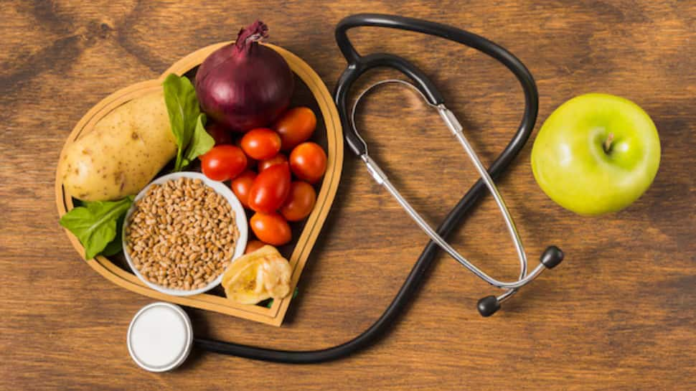High cholesterol is a common health issue that can silently increase your risk of heart disease and stroke. Fortunately, your diet plays a major role in regulating cholesterol levels — and with a few simple changes, you can naturally support heart health, reduce LDL (bad cholesterol), and increase HDL (good cholesterol).
Here are 8 evidence-backed dietary changes that can help you reduce and manage cholesterol the natural way:-
1. Increase Soluble Fiber Intake
Why it helps:
Soluble fiber binds with cholesterol in the digestive system and helps remove it from the body before it reaches the bloodstream.
Best sources:
Oats, legumes (like lentils and beans), apples, citrus fruits, barley, flaxseeds, and psyllium husk.
2. Add Healthy Fats (And Ditch Trans Fats)
Why it helps:
Replacing saturated and trans fats with healthy unsaturated fats can help lower LDL cholesterol and raise HDL.
Best sources:
Avocados, olive oil, nuts, seeds, and fatty fish like salmon, mackerel, and sardines.
Avoid:
Processed foods, margarine, fried snacks, and baked goods with hydrogenated oils.
3. Eat More Omega-3 Rich Foods
Why it helps:
Omega-3 fatty acids don’t directly lower LDL but help reduce triglycerides and inflammation, improving overall heart health.
Best sources
Fatty fish (salmon, tuna, trout), chia seeds, flaxseeds, and walnuts.
4. Add More Antioxidant-Rich Foods
Why it helps:
Antioxidants help prevent cholesterol from oxidizing, which reduces the risk of plaque buildup in arteries.
Best sources:
Berries, dark leafy greens, green tea, dark chocolate (in moderation), and colourful fruits and vegetables.
5. Choose Whole Grains Over Refined Carbs
Why it helps:
Whole grains are high in fiber and take longer to digest, which helps regulate blood sugar and cholesterol levels.
Best sources:
Oats, quinoa, barley, whole wheat, and brown rice.
Avoid:
White bread, sugary cereals, white rice, and pastries.
6. Eat More Plant-Based Foods
Why it helps:
A plant-forward diet naturally contains less saturated fat and more cholesterol-lowering nutrients.
Best foods:
Vegetables, fruits, legumes, nuts, seeds, and whole grains. Try plant-based swaps for meat a few times a week.
7. Use Natural Cholesterol-Lowering Ingredients
Why it helps:
Certain foods have compounds that actively help lower cholesterol.
Try adding:
– Garlic: reduces total and LDL cholesterol.
– Turmeric: contains curcumin with anti-inflammatory properties.
– Green tea: rich in catechins.
– Apple cider vinegar: may support lipid balance.
8. Limit Sugar and Alcohol Intake
Why it helps:
Excess sugar and alcohol can raise triglycerides, lower HDL, and contribute to liver strain — all of which negatively impact cholesterol levels.
Tips:
Choose water, herbal teas, or infused water. Limit sugary drinks, desserts, and alcohol consumption to moderate levels.
Improving your cholesterol levels doesn’t require extreme diets or medications right away — just mindful, consistent dietary changes. By adding heart-healthy foods and removing harmful ones, you can naturally reduce your cholesterol and support your overall well-being.
(This article is meant for informational purposes only and must not be considered a substitute for advice provided by qualified medical professionals.)


